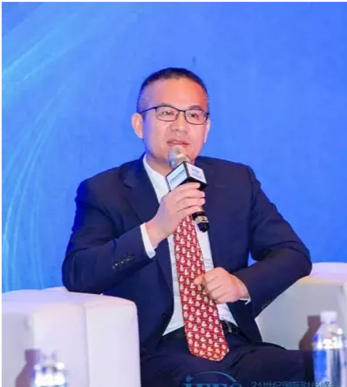2018.10.19 CoStone Capital Views:
“What’s new about the new economy? First, chronologically, the industries which emerged and boomed in the last five to ten years, like NEVs, semiconductors and 5G, belong to the new economy. Second, in terms of problem solving, new models and new business forms like mobile payment, are characterized as the new economy industries.
CoStone Capital Li Xiaohong: No Core Tech, No New Economy

On October 17, 2018, 21st Century International Finance and Economics Summit, organized by 21st Century Business Herald, was held in Shenzhen. Li Xiaohong, partner of CoStone Capital, was invited to the innovation and development of the new economy enterprises forum and delivered a keynote speech.
“What’s new about the new economy? First, chronologically, the industries which emerged and boomed in the last five to ten years, like NEVs, semiconductors and 5G, belong to the new economy. Second, in terms of problem solving, new models and new business forms like mobile payment, are characterized as the new economy industries.
At this critical juncture, no core technology, no new economy. An excellent team should have profound understanding on technologies and take them in their own hands. De-black boxing technologies can facilitate fast upgrades. Fast updates are the embodiment of new economy. A venture team or start-up must pay much effort on its core technologies.

Bubbles are not necessary a bad thing for getting breakthroughs in the new economy or new technologies. Bubbles reveal the aggregation of resources which is able to attract talents and funds and to accelerate and increase the application and the maturity of new technologies. In a way, proper bubbles are good to the development of the new economy and technologies.”
Above: Excerpt of the keynote speech of Li Xiaohong in the forum. Please refer to this link to view the speech in full: http://stonevc.com/news_view.aspx?TypeId=4&Id=714&Fid=t2:4:2
Rewritten by: Luo Xinying, Edited by: Du Zhixin, Wei Yiyi
The year 2019 marks the fortieth anniversary of China’s Reform &Opening-Up, once again, we meet at the turning point of history. What’s the next step for the game, is there any clear guidance? The answer is affirmative.
Our country is enjoying a good momentum of development, which does not come from the Washington Consensus nor the Beijing Consensus. China’s experience has proved that both the visible hand and the invisible hand are crucial: the visible hand, stands for the government-led reform, and would yield benefits for reform and opening up; the invisible hand, stands for the Marginal Power represented by the private sector, and would improve economic efficiency and tax collection, create jobs and employment opportunities.
Provided that we want to protect and expand the benefits form reform, three simple but mandatory agreements are to be made and followed: No.1 Private ownership must be recognized, protected and treated equally with public ownership constitutionally, both ownerships are scared and inviolable;No.2 Make further clarification of the principal position of market economy, “deepen economic system reform by centering on the decisive role of the market in allocating resources”, as President Xi addressed in the third Plenary Session of the 18th CPC Central Committee;No.3 Implement the guiding principles of “comprehensively promoting law-based governance” of the fourth plenum. The rule of law is essential for economic growth, irreplaceable to protect private ownership, and necessary to encourage innovation and entrepreneurship.
Above are three rules for us to avoid falling into the Middle-income Trap. Assuming that we are breaking systematic barriers to private enterprises’ participation in market economy, and boosting innovation and entrepreneurship of our society, then we are heading towards a promoting direction. We are marching in the path of light, regardless of the ups and downs of Sino-US relationship, the drop in GDP growth rate, or the monetary policy.
These principals also apply on knowing how better to run a business: don’t be hedged by rules and regulations at the beginning, pay more attention to your survival, and you’ll learn more when you start your second business.
For many years, Huawei has been the only Chinese company on the list of the Top 50 R&D Spenders. Regardless of the economy and its income, what Huawei has been doing is investing in its future, dedicated to R&D, continuously and resolutely. This provisional work underscores Huawei’s accomplishments, making Huawei anindustry leader.
So, there are standard answers on how to run a company,which could be summarized as concentration and professional dedication, continuous investment on innovation and trying harder in R&D. Entrepreneurship is also important, every single company needs entrepreneurs to push aside all obstacles and difficulties, to implement strategies and ideas. We, as investors, are destined to look for such outstanding entrepreneurs and their companies, invest in them and partner with them.
At this key point of history, a country, a company, or asingle individual, will all need to find the right path. Four decades after the Reform and Opening-up, it’s time to learn from our experience and stop “wadding across
